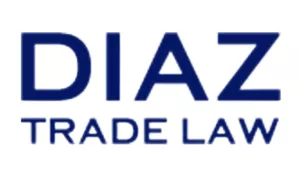Cuba is home to 11 million consumers and a growing private sector. Its proximity to the United States (the Port of Havana is only 198 nautical miles from the Port of Miami) makes the country a natural trade partner. While changes in policy over the last several years have unlocked new business opportunities in Cuba, there are still regulatory barriers that individuals and companies should be aware of.
U.S. Embargo
The United States imposed a comprehensive economic embargo on Cuba in the 1960's which restricts most trade between the two countries. It also includes restrictions on travel and investment.
Although the U.S. faced pressure to end the embargo, the state of affairs remained largely unchanged until 2014.
In December 2014, President Obama made a historic announcement: "Today, the United States is taking historic steps to chart a new course in our relations with Cuba and to further engage and empower the Cuban people." By January 16, 2015, both the U.S. Treasury Department and the Office of Foreign Assets Control (OFAC) amended its Cuban Assets Control Regulations, and the U.S. Department of Commerce's, Bureau of Industry and Security (BIS) amended the Export Administration Regulations with a "Support for the Cuban People" license exception. The license exception was most significant for travel, telecom, building materials and agricultural equipment, financial services, and personal importations.
OFAC and BIS issued additional new rules on January 16, 2015, September 21, 2015, January 27, 2016, March 15, 2016, October 14, 2016, November 9, 2017, and June 8, 2022.
While these new rules made progress in enabling business in Cuba, many barriers still existed for private investment and entrepreneurship for Cuban nationals.
Challenges for Privately Held Cuban Companies
State-owned businesses have dominated the Cuban economy for
decades. This is partially because private businesses in most
sectors have historically been banned. Regulations have long
prevented Cuban nationals from forming corporations in most cases.
Even when private businesses have been permitted, business owners
have been required to partner with the government.
In 1981, public sector employment was over 90%, and only decreased
to 78% by 2006. Cuban regulations have also prevented international
businesses from forming a business venture with citizens. The only
way for an international company to expand to Cuba was for the
company to partner with the government, posing significant
bureaucratic challenges. While these regulations remained status
quo for decades, pressure from citizens accelerated by the pandemic
contributed to significant changes to these policies in 2021.
Enabling Private Investment Through MIPYMEs
On August 19, 2021, the Cuban government, headed by Miguel Díaz-Canel Bermúdez, issued a series of decrees that attempted to open up the Cuban economy to private management, with a focus on micro, small, and medium-sized enterprises. The decrees modified the regulations on self-employment and enabled the possibility of setting up 100% private companies. For most sectors, this was the first time wholly private entities have ever been permitted.
Under the new regulations, private micro, small, and medium-sized enterprises (classified as MIPYMEs) are now able to incorporate as limited liability companies. MIPYMEs are defined as companies with under 100 workers.
MIPYMEs must be approved by the Ministry of the Economy and may not engage in activities that the government determines are "strategic" such as education, mining, defense, and health. Professional services are largely excluded from the new rules. Service based businesses such as engineers or legal professionals are not authorized to set up an independent enterprise.
Lastly, the initiative is intended to enable private entity ownership by Cuban nationals, not foreigners. The initiative is limited to Cubans who are natural persons and residents. Cubans may also only be partners in one company. While the new regulations do not directly open the economy to foreign investment, they do encourage indirect investment since most Cubans do not have sufficient access to capital.
What Does This All Mean for Doing Business with Cuba?
These changes have made a significant impact in allowing U.S. businesses to expand their offerings to Cuba.
However, while the OFAC, BIS, and MIPYME rules made doing business in Cuba possible, there are still significant challenges that come with expanding business operations in the country. The Cuban government has issued expansive lists of activities not authorized to be carried out by MIPYMEs. In addition, the United States embargo against Cuba is still in effect and largely prohibits U.S. businesses from conducting trade with Cuban interests. It will take an act of Congress to fully remove the embargo. Legislation has been introduced to lift the embargo, but has failed to gain traction.
Work With an Expert to Ensure You Meet All Regulatory Requirements
Before engaging in any business with Cuban interests, it is important to consult with a trade attorney to ensure you meet all of the U.S. regulatory requirements. Specifically, it is essential to ensure you are aware of whether your transaction is covered by a general license from the Office of Foreign Assets Control (OFAC) or whether you need a specific license before engaging in the transaction. Exports to Cuba may also need a license from the Bureau of Industry and Security (BIS) before proceeding with the exportation. Conducting illegal business in Cuba may lead to a variety of penalties including corporate fines that add up to tens of millions of dollars. Working with a trade expert will ensure you understand the challenges and opportunities in Cuba while minimizing your legal risk.
The content of this article is intended to provide a general guide to the subject matter. Specialist advice should be sought about your specific circumstances.


